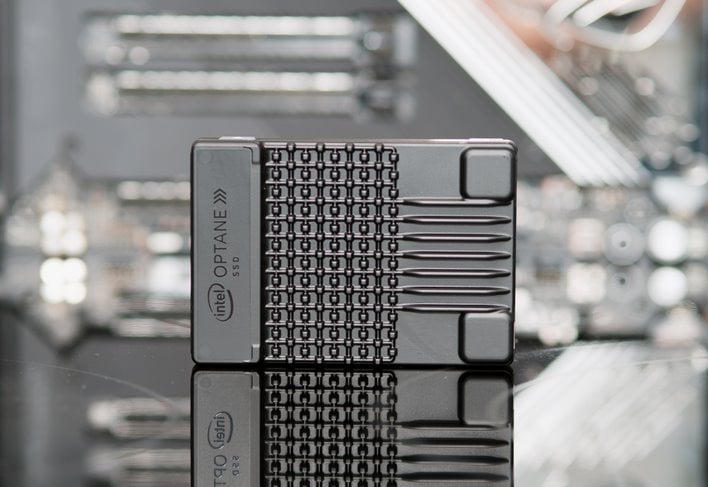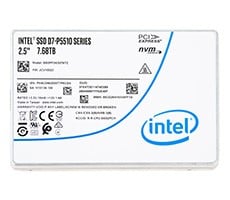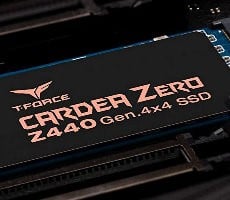Intel Optane SSD P5800X Review: The Fastest SSD Ever
HDTune v5.75 Benchmarks
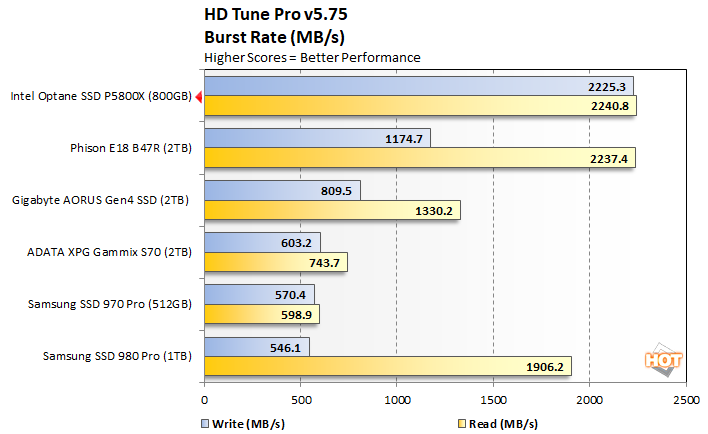
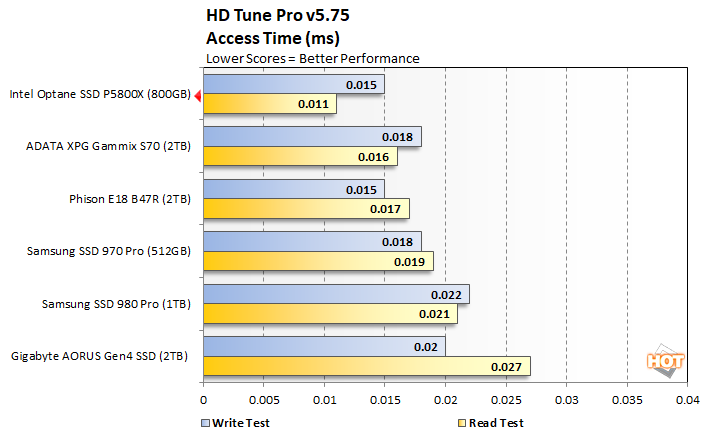
CrystalDiskMark x64 Benchmarks
CrystalDiskMark is a synthetic benchmark that tests both sequential and random small and mid-sized file transfers using incompressible data. It provides a quick look at best and worst case scenarios with regard to SSD performance, best case being larger sequential transfers and worse case being small, random transfers.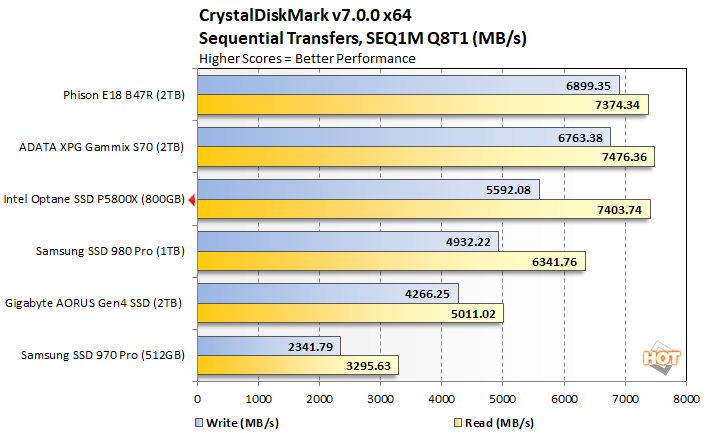
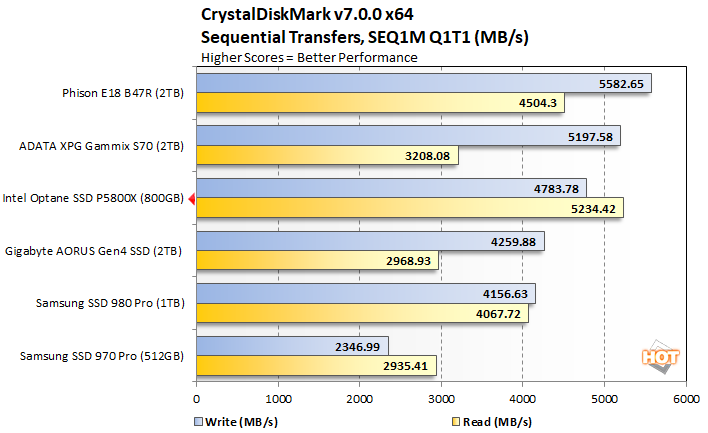
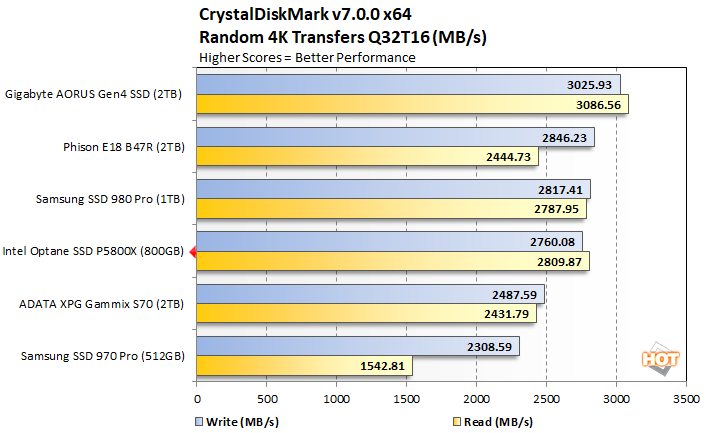
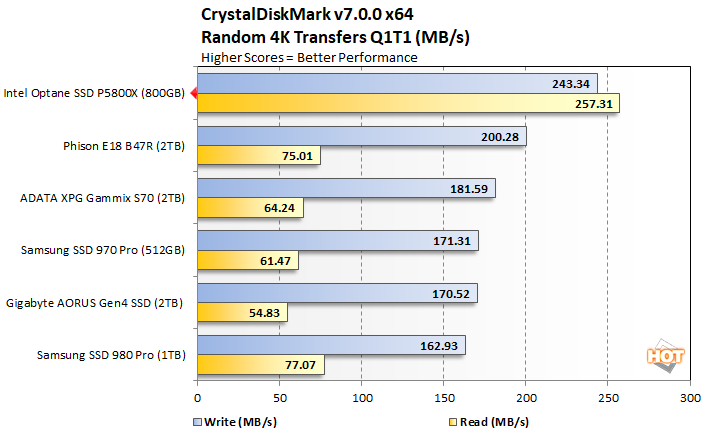
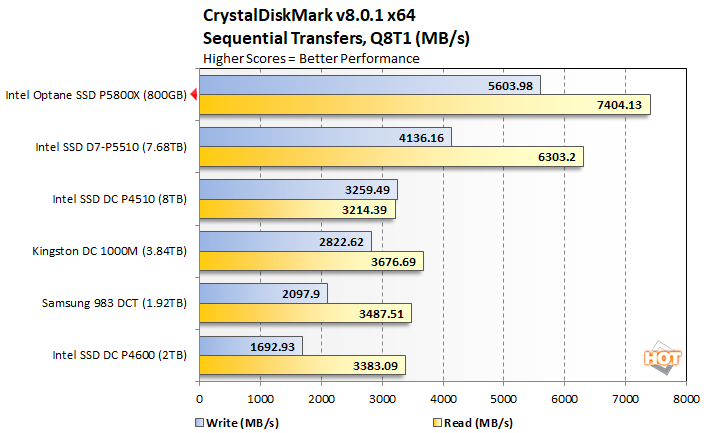
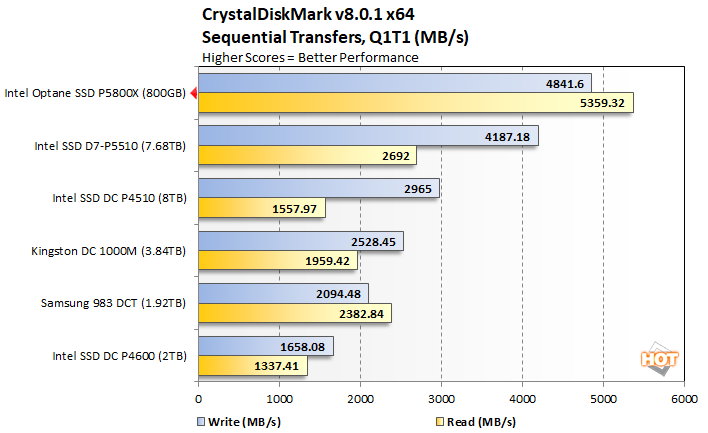
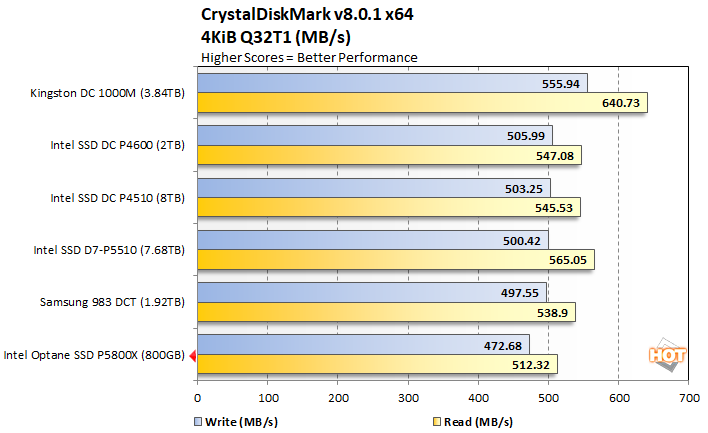
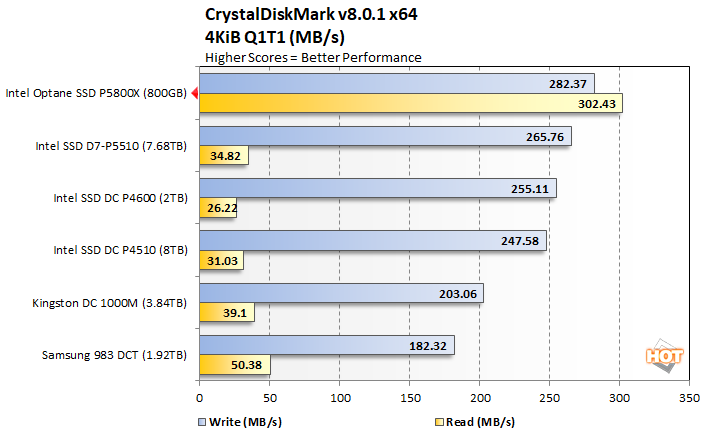
We also had some fresh CrystalDiskMark 8 data avaialble from an upcoming enterprise SSD review, so we figured we'd toss these into the mix as well, to illustrate what the Optane SSD P5800X can do with the latest version of this benchmark. As you can see, performance is strong across the board and the Optane SSD P5800X's low queue depth 4K transfers lead the pack -- especially with reads.
Futuremark's PCMark 10 Storage Test
We like PCMark 10's new quick storage benchmark module for its real-world application measurement approach to testing. PCMark offers a trace-based measurement of system response times and bandwidth under various scripted workloads of traditional client / desktop system use cases.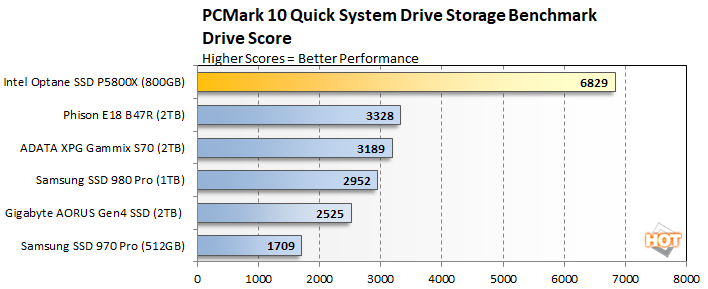
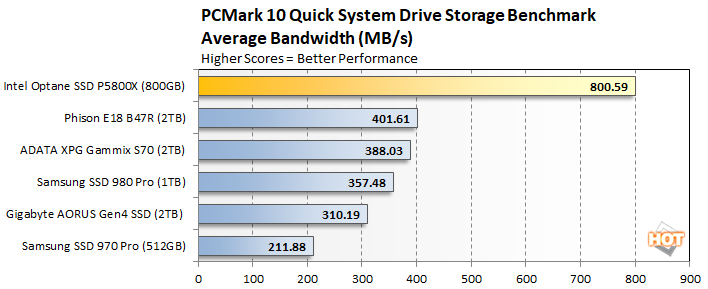
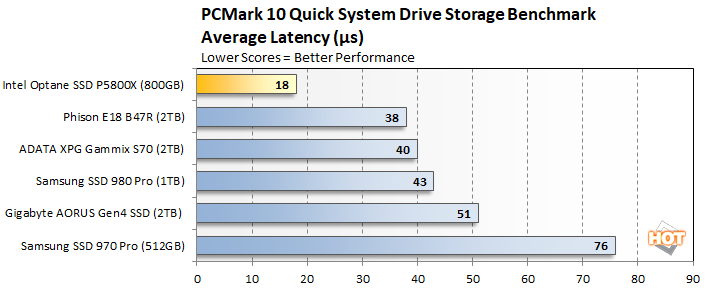
Yes, the graphs above are correct. PCMark 10 is perhaps the most telling benchmark we ran. This benchmark uses trace-based tests of actual consumer applications and workloads. Because the overwhelming majority of consumer workloads reside at QD1 and consist mostly of a mix of random reads, the Optane SSD P5800X really shines. It completely obliterates the fastest NAND-based PCIe Gen 4 SSDs across the board, and offer significantly better average real-world bandwidth and latency.
Our Verdict: Intel Optane SSD 5800X
The Intel Optane SSD P5800X is an absolute beast in the workloads that matter most for the vast majority of workstation users and enthusiasts. Random reads and writes are exceptionally good and access times at low queue depths are excellent – we point these aspect out first, because they are most impactful in terms of perceived responsiveness. The Optane SSD P5800X‘s sequential transfers, while strong, aren’t on the same level as some of today’s fastest NAND-based PCIe 4 solid state drives, but the Optane SSD P5800X is still able to exceed 7GB/s, which is extremely fast.
Due to its heft price premium, the Optane SSD P5800X clearly isn’t for everyone, but hardcore enthusiasts or pro workstation users with the budget, will probably be drooling for one of these puppies. The Intel Optane SSD P5800X offers ultra-endurance and killer performance where it matters the most, and as such, we’re giving it an Editor’s Choice award. If money was no object, this is the drive we’d want in a system over all others right now. It's price tag will obviously put it out of reach for most folks, though.

|
|

